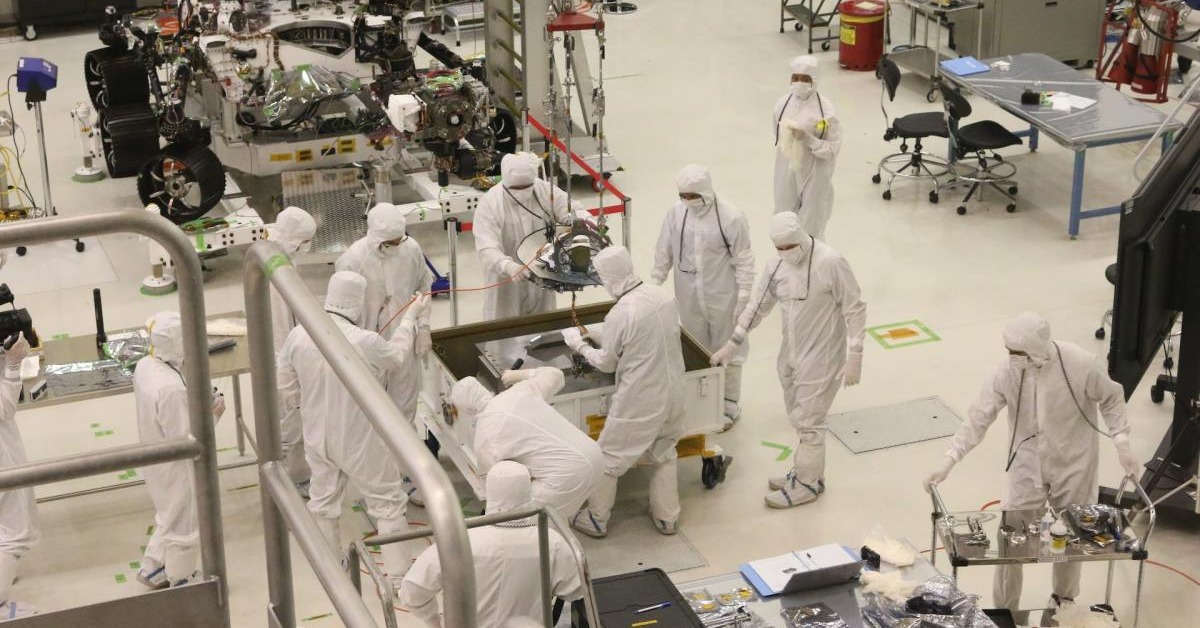
How Much Will You Make With a PhD in Business Analytics?
A PhD in Business Analytics prepares you for a career [...]

Logistics managers oversee the purchase and distribution of products in a supply chain. It seems simple enough—until you consider how complicated even a simple supply chain can be.
Take manufacturing a product like running shoes, for example. Lots of component materials go into the production of running shoes, from rubber to cloth to plastic. Those materials are held together with thread and glue. All of these materials have to be sourced from suppliers and ordered on a precise schedule. There’s also packaging to consider. Shoe boxes come from one supplier. Labels come from another.
If there’s not enough plastic or shoe boxes or glue, these products won’t get to where they need to be on time. As a result, there won’t be enough running shoes to meet consumer demand. If any one of those component parts is substandard, the running shoes produced won’t meet consumer quality standards.
As you can see, it isn’t just a matter of ordering plenty of everything and shipping it out as fast as possible. Expedited transportation is expensive. So is accelerated production. Any materials or inventory surpluses have to be stored somewhere, and that means paying additional warehousing costs. Logistics is a constant balancing act.
Logistics managers have to weigh costs against benefits, forecast the most efficient and cost-effective ways to transport materials and goods, and find ways to optimize supply chains so that businesses have what they need, in the right amounts, exactly when they need them.
What does it take to do all that? In this article, we look at what does a logistics manager do by covering the following:
Creating a comprehensive list of logistics manager duties is challenging because these professionals wear many hats. Further, what they do varies by industry (more on this below). Some logistics managers oversee teams or are responsible for oversight of logistics across an entire region. In contrast, logistics managers at smaller companies may have no supervisory duties at all. They might even handle purchasing, shipping, warehousing, and distribution directly.
However large or small the scope of their responsibility, logistics managers exist to ensure the efficient flow of raw materials, component parts, and goods. A logistics manager’s primary responsibilities involve the management of procurement, shipping, and operations related to supply chain management, and they may handle some or all of the following:
In all of these duties, there are opportunities for logistics managers to identify and remove bottlenecks and other obstacles, as well as to optimize logistical operations. Many have some experience with logistics analysis and can generate reports showing how quickly or accurately suppliers or warehouses are filling orders… or sniff out where there is room for improvement.
| University and Program Name | Learn More |
|
Pepperdine University:
Online Master of Business Administration
|
|
|
Stevens Institute of Technology:
Online Master of Business Administration
|
|
|
Merrimack College:
Master of Science in Leadership
|
|
|
Merrimack College:
Master of Science in Management
|
|
|
The University of Tennessee:
Online Master of Business Administration
|
According the U.S. Bureau of Labor Statistics, the manufacturing sector employs the greatest number of logistics professionals. They don’t track statistics for logistics managers in particular, but it’s reasonable to assume that where you find logisticians, you’ll also find plenty of logistics managers. The U.S. government is the next-largest employer of logistics professionals. Logistics managers also work in retail, the pharmaceutical industry, hospitals, and various other professional, scientific, and technical settings.
The typical work environment of a logistics manager varies by industry. Some logistics managers spend all their time in an office behind a desk while others work in warehouses or factories. Logistics managers who work for third-party logistics providers spend a lot of time on the road, checking in with existing clients and forging relationships with new ones. Logistics management tends to be an eight-to-six kind of gig, but when supply chain issues arise, logistics managers will be called upon to work odd hours or to work around the clock until the problem is resolved.
There are plenty of professionals in this role with high school diplomas or associate’s degrees; it’s technically possible to enter the supply chain and logistics field as a general logistician and work your way up into a management position. However, most logistics managers have bachelor’s or master’s degrees, so if you want to stay competitive in the job market, you should strongly consider completing an undergraduate or graduate program.
There are no logistics management degree programs at the bachelor’s degree or master’s degree levels, but there are plenty of appropriate degree pathways. At the undergraduate level, the Bachelor of Science in Logistics and Supply Chain Management and Bachelor of Business Administration in Supply Chain Management are good choices, but it’s also possible to do a logistics manager’s work with a Bachelor of Science in Operations Management or a Bachelor of Science in Business Analytics. Graduate degrees for logistics managers include the:
Students in logistics and supply chain operations degree programs study:
Only 24 percent of logistics managers have master’s degrees. That may be because the cost of earning an advanced degree isn’t worth the relatively small increase in earning potential in this field. Logistics managers with bachelor’s degrees typically earn between $107,000 and $114,000 (according to Salary.com). Logistics managers with master’s degrees only earn about a thousand dollars more per year but may have to repay thousands of dollars of student loans.
Logistics managers don’t have to be certified to work—and in fact, getting certified doesn’t guarantee a logistics manager has the communication skills, organizational skills, or problem-solving skills necessary to succeed in this role.
There are, however, several compelling reasons to get certified. Having one or more certifications demonstrates professional competence, and certified logistics managers may command more respect among the logistics analysts, logistics specialists, transportation specialists, and other supply chain and logistics professionals they oversee.
The most common certifications for logistics professionals are the:
A logistics manager’s duties largely depend on their employer’s expectations, regardless of industry. Smaller companies may employ one logistics manager; their responsibilities may include purchasing, supply chain oversight, transportation support, and inventory management. Large companies and third-party logistics providers may employ several logistics managers who each focus solely on one or two specific areas of logistics. For example, a company might have one logistics manager acting as a distribution manager while another handles systems support.
The best way to get a sense of what employers expect of logistics managers in different industries is to read a lot of job listings. You may find that employers are looking for very different things. Consider these two lists of logistics manager responsibilities taken from job ads. One was posted by a retail giant and another by a large hospital system:
Example 1:
Example 2:
You probably noticed that in the first example, the majority of the logistics manager’s duties involve overseeing outbound product flow. In the second, the logistics manager is primarily responsible for inbound product flow.
There’s lots of opportunity for advancement in this field, but employers prefer to hire logistics managers with experience in supply chain and logistics roles. Before becoming a logistics manager, you might spend a few years working as a:
At the management level, a logistics professional might work in a variety of related occupations before moving into a logistics manager position, including:
This isn’t a terminal position. Logistics managers can advance to higher-level, higher-paid roles like logistical administrator, logistics director, vice president of logistics, or chief supply chain officer.
Logistics companies and the manufacturing and distribution companies that employ logistics managers tend to pay these professionals quite well. Just how well can be hard to pin down. According to Indeed, the average salary for logistics managers is about $61,000. PayScale’s published average is only slightly higher. Salary.com, on the other hand, reports that the average logistics manager salary is $112,000 and that the highest-earning 10 percent earn $135,000 or more.
Which site is right? It may be that all of them are. A logistics manager’s salary can vary quite a bit based on factors like location, highest level of education, industry, and level of professional experience. The figures published by some sites may include salary information submitted by logistics managers doing part-time work—and those who work for companies who receive additional compensation in the form of bonuses, benefits, and retirement plan matching.
Lower figures may also be for logistics managers without certifications. According to the latest Association for Supply Chain Management (ASCM) Supply Chain Management and Career Survey Report, respondents with Association for Supply Chain Management certifications like the CLTD, Certified in Production and Inventory Management (CPIM) credential, or Certified Supply Chain Professional (CSCP) credential reported earning 25 percent more than their uncertified colleagues.
Logistics management can be stressful because supply chains never stop moving. Day or night, raw materials are delivered, goods are manufactured, inventory is stored, and products are shipped from here to there. When supply chain interruptions happen, the logistics manager has to find solutions, whether the clock says 3 pm or 3 am. Not everyone is comfortable shouldering that kind of anything-can-happen-at-anytime responsibility.
If you’re okay with the idea that yours will be the first phone to ring when there’s a problem, however, then you should definitely consider a career in logistics management. The pay is substantial once you move out of entry-level positions into managerial roles in the logistics industry, and according to the salary survey linked above, it’s going up every year. That same survey also found that job stability is strong in supply chain logistics and distribution and that there are lots of advancement opportunities for logistics and supply chain professionals.
Logistics managers also have a surprisingly easy time balancing work and life outside of work. Most receive holiday pay, and 80 percent of logistics and supply chain managers get three or more weeks of paid time off each year. It’s not uncommon for logistics managers to have flexible working arrangements and the ability to work from home some or even all the time. Maybe that’s why so many supply chain professionals love their jobs. The ASCM survey found that an “overwhelming majority of respondents” are extremely satisfied in logistics.
Do logistics managers work hard and do a lot? Absolutely. But don’t let that discourage you from digging deeper into this career, because it turns out that most of them love what they do.
(Last Updated on February 26, 2024)
Questions or feedback? Email editor@noodle.com

A PhD in Business Analytics prepares you for a career [...]

Channel marketers across the board earn good money. There are [...]

Lean Six Sigma approaches minimize error while maximizing capacity. Waste [...]

Full-time jobs for industrial engineers are plentiful. Professionals with certifications, [...]

Online master's programs are more highly regarded today than ever. [...]
Categorized as: Business Administration, Supply Chain Management, Business & Management